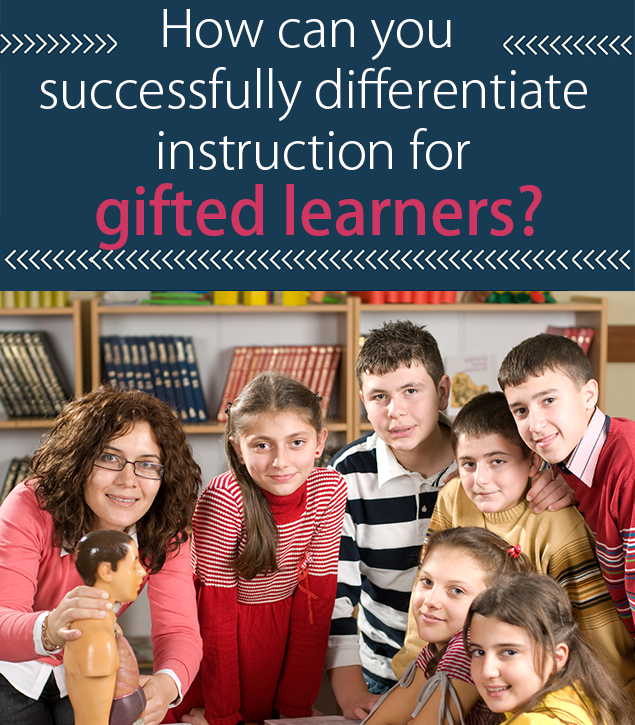How Can Teachers Challenge Gifted Learners With Differentiated Instruction?
Posted by Network Support · Leave a Comment
Consider these aspects when using differentiated instruction for gifted learners. These instructional strategies will aid in providing fun and challenging curriculum for all students.
Differentiated learning can sometimes seem daunting to a teacher, but most teachers realize the importance of meeting each student’s individual needs. Differentiated learning is not just for different learning styles, but it is also used to help gifted learners succeed to the best of their ability.
Several practice strategies can be incorporated into everyday instruction to best help meet the needs of gifted learners. Differentiation for gifted learners does not mean “more.” Instead, it is a different level of work. The following are several tips for success when differentiating curriculum and working with “gifted and talented” learners:
- Remove mastered material from the existing curriculum.
- Those who have demonstrated mastery of concepts should not be required to “review” or “learn” the content again. Through the use of pre-assessments, teachers can identify concepts already mastered by their students.
- Add new content, process or product expectations to the curriculum.
- Based on pre-assessment and interest inventories, content should be developed that is challenging and stimulating for “gifted” learners.
- Extend the existing curriculum to provide enrichment opportunities.
The following are 4 aspects to consider when providing differentiated learning opportunities for your gifted learners:
- Product
Adjustments to the learning process that are specific to each learner while aligning with the educational objectives enable gifted students’ flexibility in demonstrating their mastery of a concept. For example, while studying ecosystems, one student may choose to write from the perspective of an endangered animal. Another student may choose to investigate the impact carbon has on indigenous plant life. A third gifted learner may choose to make a presentation highlighting the role a specific ecosystem plays on the local community. In all three circumstances the learning product is differentiated by allowing students to choose how best to demonstrate mastery of the content learning objectives, so end product will still be mastery of a certain concept.
- Content
Following a prescribed content or curriculum plan may not always be in the best interest of gifted students. Pre-assessments administered prior to the teaching of a unit will allow educators to gauge how much content is already known about a specific subject.When gifted students have proficient knowledge across a specific content area, why subject them to the lesson… again? Instead, the content can be changed or taken to the next level.
- Process
Some students learn best through practical applications, whereas others thrive in more analytical environments.Suppose the curriculum outlines teaching biomes to 7th graders. Some gifted students may need to be taught using a traditional lecture model, whereas, other gifted and talented students may need to interact with the information through simulations. The process in which information is delivered is determined by knowing how best a gifted student learns new information.
- Assessment
Just as gifted learners are entitled to differentiation in the product, content and process of their curricula, they also require a more individualized approach to assessment. Consider having gifted learners design their own rubrics and set their own achievement levels. Allow them to determine their own readiness level after demonstrating a level of prior knowledge. Provide guidance and facilitation by incorporating collaboration and conference time as a part of each culminating activity. Also discuss the difference between a basic and a challenging rubric with students.
Following these tips and considering these aspects when providing differentiated learning for gifted learners will ensure every student learns to the best of their ability.
Like this article for teachers?
Browse the Professional Learning Board COURSE CATALOG to find related online courses for teachers in your state. Professional Learning Board is a leading provider of online professional development classes that teachers use to renew a teaching license or renew a teaching certificate.





